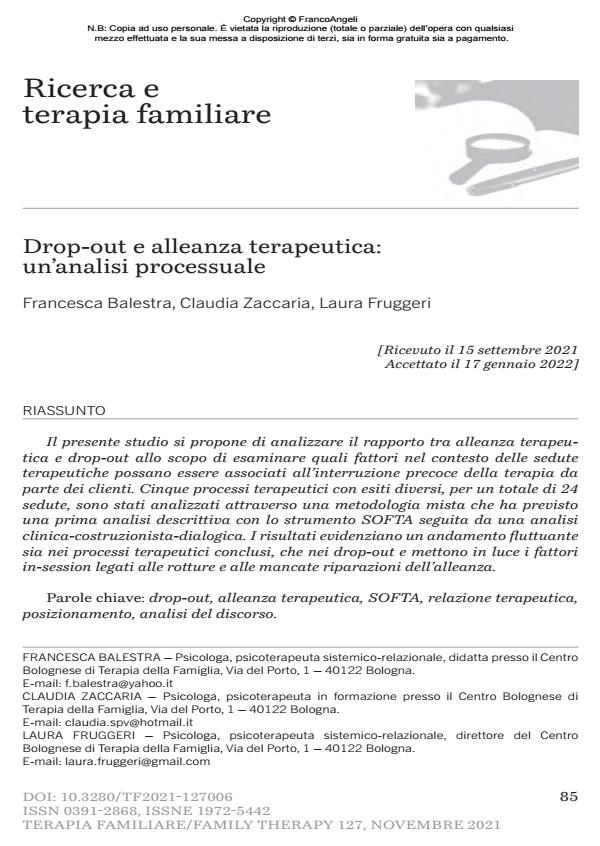Drop-out and therapeutic alliance: a process analysis
Journal title TERAPIA FAMILIARE
Author/s Francesca Balestra, Claudia Zaccaria, Laura Fruggeri
Publishing Year 2022 Issue 2021/127
Language Italian Pages 22 P. 85-106 File size 672 KB
DOI 10.3280/TF2021-127006
DOI is like a bar code for intellectual property: to have more infomation
click here
Below, you can see the article first page
If you want to buy this article in PDF format, you can do it, following the instructions to buy download credits

FrancoAngeli is member of Publishers International Linking Association, Inc (PILA), a not-for-profit association which run the CrossRef service enabling links to and from online scholarly content.
The study aims to investigate the relationship between therapeutic alliance and drop-out to examine which factors in the context of therapeutic sessions may be associated with early termination of therapy by clients. Five therapeutic processes with different outcomes, for a total of 24 sessions, were analyzed through a mixed methodology that included an initial descriptive analysis with SOFTA, followed by a clinical-constructionist-dialogical analysis. The results show a fluctuating trend both in the completed therapeutic processes and in the dropouts and point out the in-session factors linked to the ruptures and failures to repair the alliance.
Keywords: Drop-out, therapeutic alliance, SOFTA, therapeutic relationship, positioning, discourse analysis.
Francesca Balestra, Claudia Zaccaria, Laura Fruggeri, Drop-out e alleanza terapeutica: un’analisi processuale in "TERAPIA FAMILIARE" 127/2021, pp 85-106, DOI: 10.3280/TF2021-127006